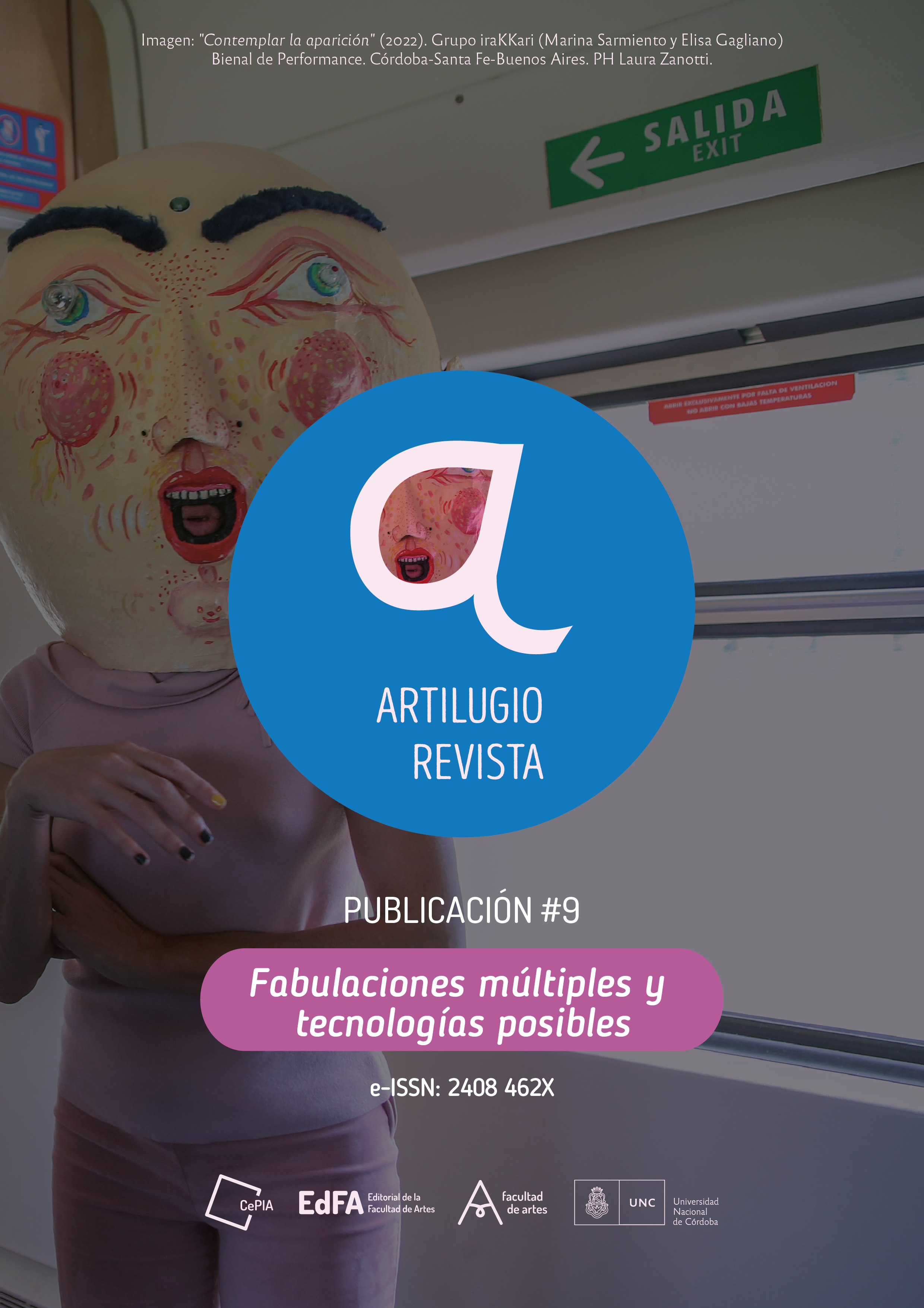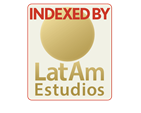Ekphrasis as difference in “El Aleph” by Borges
DOI:
https://doi.org/10.55443/artilugio.n9.2023.42248Keywords:
Borges, écfrasis, argentine literature, Aleph, poeticsAbstract
Based on recent theoretical developments that reformulate the notion of ekphrasis to conceive it as the verbal representation of a visual representation, the paper proposes a reading of the five ekphrasis scenes that make up Borges' “El Aleph”. Although critical readings of this story have pointed out that the duel between Borges and Daneri opposes two conceptions of literature and representation, it has not been noticed that ekphrasis is the terrain in which this dispute takes place and unfolds. In this sense, We contrast the writing of Daneri and Borges of the Aleph as ekphrasis and analyze their problems and paradoxes. On the one hand, we maintain that these ekphrases must be read in relation to the other ekphrases in the story, which allows us to situate them as two formal responses of literature within the framework of the transformations produced by modernization. On the other, we propose that Borges makes his ekphrasis of the Aleph a problem of narrative writing. In this way, it proposes a notion of ekphrasis as a difference, which questions the conception in purely representative terms.
Downloads
References
Alazraki, J. (1986). Enumerations As Evocations: Of the Use of a Device in Borges’ latest poetry. En Borges the Poet (pp. 149-157). Fayetteville: The University of Arkansas Press.
Balderston, D. (2012). The Universe in a Nutshell: The Long Sentence in Borges’ «El Aleph». Variaciones Borges, 33, pp. 53-72.
Barrenechea, A. (1984). La expresión de la irrealidad en la obra de Borges. Buenos Aires: Centro Editor de América Latina.
Benjamin, W. (2019). El narrador. Consideraciones sobre la obra de Nikolái Léskov. En Iluminaciones (pp. 225-252). Buenos Aires: Taurus.
Borges, J. L. (2006). Obras completas (Vol. 1). Buenos Aires: Emecé.
Borges, J. L. (2008). El Aleph. En El Aleph (pp. 128-143). Buenos Aires: Emecé.
Buck-Morss, S. (1995). Dialéctica de la mirada. Walter Benjamin y el proyecto de los Pasajes. Madrid: Visor.
Deleuze, G. (2013). El Saber. Curso sobre Foucault (Tomo 1). Buenos Aires: Cactus.
Derrida, J. (1994). Firma, acontecimiento, contexto. En Márgenes de la filosofía (pp. 347-372). Madrid: Cátedra.
Gabrieloni, A. (2008). Écfrasis. Eadem Utraque Europa, 4(6), pp. 83-108.
Hollander, J. (1988). The poetics of ekphrasis. Word & Image: A Journal of Verbal/Visual Enquiry, 4(1), pp. 209-219. https://doi.org/10.1080/02666286.1988.10436238. DOI: https://doi.org/10.1080/02666286.1988.10436238
Krieger, M. (2019). Ekphrasis and The Sill Movement of Poetry; or Laokoön Revisited. En Ekphrasis: The illusion of the natural sign (pp. 263-288). Baltimore and London: John Hopkins University Press.
Lacan, J. (2006). De la mirada como objeto a minúscula. En El Seminario Libro XI. Los cuatro conceptos fundamentales del psicoanálisis (pp. 75-128). Buenos Aires: Paidós.
Lacan, J. (2008). El estadio del espejo como formador de la función del yo (je) tal como se nos revela en la experiencia psicoanalítica. En Escritos I (pp. 99-105). Buenos Aires: Siglo Veintiuno.
Laclau, E. (2000). Sobre los nombres de Dios. En Misticismo, retórica y política (pp. 101-128). Buenos Aires: Fondo de Cultura Económica.
Louis, A. (1999). Enrique Pezzoni, lector de Borges. Buenos Aires: Sudamericana.
Mitchell, W. (2009). Teoría de la imagen. Madrid: Akal.
Molloy, S. (1999). Las letras de Borges y otros ensayos. Rosario: Beatriz Viterbo.
Nancy, J. L. (2015). Ekphrasis. Études françaises. Toucher des yeux. Nouvelles poétiques de l´ékphrasis, 51(2), pp. 25-35. https://doi.org/10.7202/1031226ar. DOI: https://doi.org/10.7202/1031226ar
Panesi, J. (2004). Borges y la cultura italiana en la Argentina. En Críticas (pp. 153-168). Buenos Aires: Norma.
Rest, J. (1976). El espacio literario. En El laberinto del universo. Borges y el pensamiento nominalista (pp. 49-64). Buenos Aires: Fausto.
Rodríguez, F. (1999). La educación del olvido. En Jorge Luis Borges en 10 miradas (pp. 161-183). Buenos Aires: Fundación El Libro.
Spitzer, L. (1955). The «Ode on a Grecian Urn,» or Content vs. Metagrammar. Comparative Literature, 7(3), pp. 203-225. DOI: https://doi.org/10.2307/1768227
Published
How to Cite
Issue
Section
ARK
License
Copyright (c) 2023 Joaquín Márquez

This work is licensed under a Creative Commons Attribution-NonCommercial-ShareAlike 4.0 International License.




































